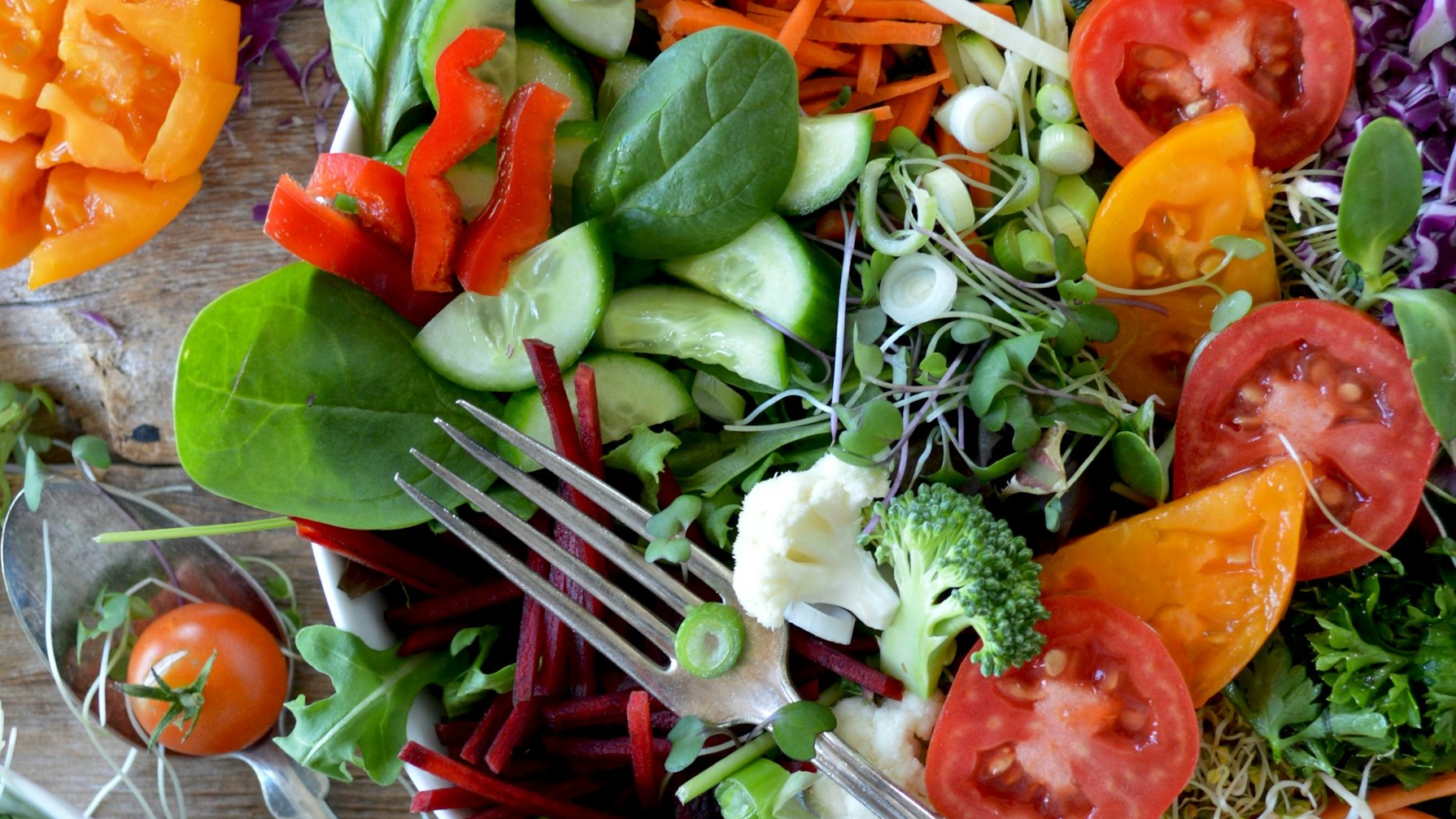Formulate user Sheena messaged us with some questions about vegetarianism and hair loss:
Does being a vegetarian compromise your ability to grow healthy hair? I love my hair, seriously, it's like half of my personality lol, but I'm also considering cutting meat out of my diet and officially becoming a vegetarian. Is this a bad idea?
Thanks for writing in, Sheena!
To answer your questions, we spoke with Sheri Berger, RDN, CDCES a registered dietitian and nutrition consultant for Health Insiders. Sheri is known as the Plant Strong Dietitian - she specializes in helping people eat more plants, and many of her clients follow vegetarian and vegan diets.
But before we answer your questions, let's get some definitions. What exactly does it mean to be a vegetarian? Because it turns out, there are a whole bunch of different vegetarian diets.
What are the different types of vegetarian diets?
"Vegan diets are the most restrictive of vegetarian meal patterns as all animal products (meat, fish, poultry, dairy, and eggs) are excluded," says Sheri. "The focus is on plant-based foods such fruits, vegetables, grains, legumes, nuts and seeds." If you're a vegan, everything that comes from an animal, even honey, is off the table.
Sheri continues, "Lacto-vegetarians focus primarily on plant-based foods and avoid most animal foods like meat, fish, poultry, and eggs, but dairy (milk, cheese, and yogurt) is included. Ovo-vegetarians avoid meat, fish, poultry, and dairy, but they include eggs."
So, if you're considering a vegetarian diet, the good news is that you can have plenty of flexibility - animal products don't have to be off the table entirely. Some folks also identify as pescatarians, meaning they don't eat meat, but do eat fish.
What causes hair loss in vegetarians?
"Any type of vegetarian meal pattern can run the risk of protein, omega-3, vitamins D and B12, or iron deficiencies which are important nutrients for shiny, healthy hair," says Sheri.
While these nutrients are easy to consume for folks who eat meat and fish, they can be a little trickier for vegetarians, especially vegetarians who don't consume many nutrient-dense foods. So if you're a vegetarian who is prone to filling up on chips, cookies, et cetera, you might not be getting the nutrients needed to grow healthy hair.
You also have to be a little extra intentional with your diet if you're a vegetarian who avoids dairy or eggs, such as an ovo vegetarian, a lacto vegetarian, or a vegan. These types of vegetarians typically require supplements to get all the nutrients they need -- more on that below.
How can you prevent hair loss if you're a vegetarian?
The good news is that there are plenty of ways to maintain a vegetarian diet that has all the nutrients you need. You'll just need to make sure you eat balanced meals that include a variety of foods, including fortified foods (meaning they include extra vitamins and nutrients), and take supplements as needed. This is totally doable if you're willing to put in the extra time and care to grocery shop and engage in meal/snack prep (yup, we said snack prep. Hello, delicious nutritional yeast popcorn!)
Not sure where to start? No worries, Sheri's got you covered. She's provided us with tips for specific nutrients below.
Protein
"A common myth I come across all the time as a plant-based dietitian is protein needs cannot be met with a vegetarian diet. The truth is protein needs can easily be met with a well-planned vegetarian diet that includes legumes such as lentils, soy, or beans, nuts, seeds, and whole grains."
Omega-3
"Ovo-vegetarians should choose eggs that are rich in omega-3s, which come from chickens that were fed omega-3 sources such as chia and flaxseeds.
"Chia seeds, ground flaxseeds, hemp seeds, walnuts, and pumpkin seeds provide ALA which is a plant source of omega-3 that is not as well absorbed as the omega-3s we get from seafood known as EPA and DHA. Vegetarians can get DHA and EPA by choosing a quality algae oil supplement."
Vitamin D
"Vegans and ovo-vegetarians can benefit from plant-based milk alternatives that are fortified with calcium and vitamin D. I recommend unsweetened soy, almond, oat, or flaxseed milk that is fortified with calcium and vitamin D to anyone who wants to avoid dairy milk. Calcium and vitamin D fortified orange juice is a great source of vitamin D for any vegetarian."
Vitamin B-12
"Vitamin B12 is an easy vitamin to miss out on if we are avoiding animal foods. Vitamin B12 is needed to form red blood cells which carry oxygen in the blood; without enough oxygen-rich blood, hair loss can occur.
"Nutritional yeast is a great flavor enhancer that can fill in missing B12, protein, and iron gaps in a vegetarian's diet. It can be added for a boost of flavor and cheesy-like taste. Try it on pasta, lasagna, or popcorn.
"A vegetarian who includes eggs and/or dairy in their diet likely runs a lower risk of a protein or vitamin B12 deficiency."
Iron
"Chia seeds and ground flaxseeds add an easy boost of iron, protein, and omega-3s to oatmeal, smoothies, salads, or bread and muffin batters."
So, does being a vegetarian cause hair loss?
Vegetarians may have a trickier time obtaining an adequate amount of certain nutrients compared to non-vegetarians. That said, vegetarianism is not a direct cause of hair loss. It's completely possible to have a vegetarian diet that provides all the nutrients you need to grow long, strong, and healthy hair -- it just might take a little extra planning.
Wanna learn more about the ins and outs of hair and skin care? Here's what you should read next:
Does alcohol cause hair loss?
Yup, alcohol can contribute to hair loss. Here's how.
Energy Drinks and Hair Loss: Is There a Connection?
Could energy drinks be connected to hair thinning? We talked to two dietitians to find out.
What Is A Cosmelan Peel?
"The results of the treatment can be significant and long-lasting, making it a worthwhile investment for some patients."
Oil Training Hair: Q&A With A Dermatologist
Everything you need to know about oil training your hair
Static Wrinkles 101: Treatment and Prevention
Can you actually prevent the development of fine, static lines?


